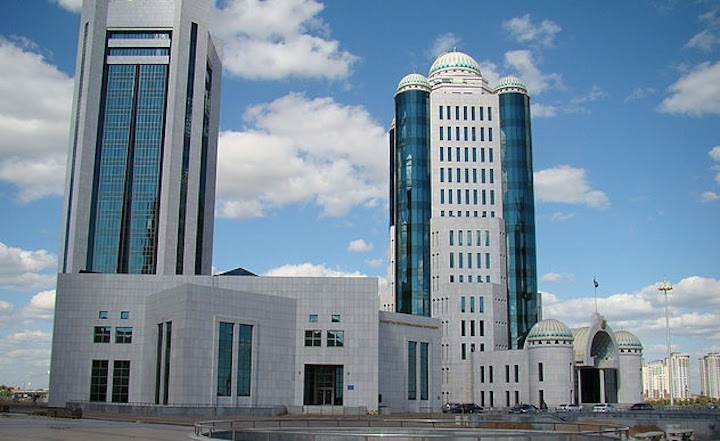
According to a letter published by the European Evangelical Alliance, the Religion and Civil Society Ministry of Kazakhstan prepared a draft bill, called an Amending Law, which proposes changes to three codes and nine laws, including the 2011 Religion Law.
Kazak Prime Minister Bakytzhan Sagintayev is expected to approve a draft of the Amending Law “soon” that would ban all unregistered churches, groups and activities. The new draft Law would restrict religious freedom with new restrictions, including: an effective ban of religious teaching unless it takes place within registered places of worship or registered religious education establishments “in accordance with their statutes,” or with the permission of the Regional authorities. This would, among other things, effectively ban religious discussions in private homes (e.g. Bible study groups).
What was left of an individual’s explicit right to “spread” religious beliefs without state permission is narrowed. Unregistered religious communities would be explicitly banned from sharing their beliefs.
A new definition of “clergy,” would require that those that want to preach require nomination by the leaders of a state-registered religious body. This would affect those religious communities, which do not have a hierarchical structure as well as any groups or churches that have clergy, but are unregistered. Further, it would reduce the number of people allowed to exercise leadership roles in a community’s worship.
State religious censorship is strengthened and all religious materials are banned, including icons, if they have “received a negative religious expert conclusion.”
“The Muslim Board and the Metropolitan Region of the Russian Orthodox Church, are the only two organizations with the status of nationwide religious organization.” These two official faith groups don’t have to re-register under the new Amending Law.
But “regional and local religious organizations that have failed to bring their statutes into line with the new provisions and have failed to gain re-registration will face liquidation.” Among them, the EEA said, are evangelical Christians.
Local sources are “extremely concerned about this Amending Law.” “When the 2011 Religion Law came into force, all religious organizations had to register anew as well.” Most Protestants in the country are in a legal limbo since 2011. “Out of more than 1,300 Protestant organizations and churches, only 495 have been able to renew their legal status. All others went underground or just disappeared. This included many Kazakh speaking churches.”
Italian evangelical Christians recently delivered a letter to the Kazakhstan embassy in Rome. It asked that the country stop “further limitations to the free expression of religion in Kazakhstan, placing thousands of citizens in a position of fragility and limiting access to one of the fundamental human freedoms: religious freedom.”
A letter has also been sent to the ambassador in Madrid (Spain). The Religious Freedom Work Group of the Spanish Evangelical Alliance asked the embassy to “intercede with its government to stop this draft Law… a fairer law guarantees religious freedom to all citizens, no matter what faith they adhere to.”
Kazakhstan ranked 28th on Christian support organization Open Doors’ 2018 World Watch List of the countries where Christians experience the most persecution.
Kazakhstan is mostly Muslim and Orthodox. The new law would have an effect similar to the Russian law that is being used to liquidate the Jehovah’s Witnesses. But this time it is targeted at all religious groups that can’t re-register and makes Islam and Orthodoxy the predominant religions.
Jesus said, “Go ye therefore and teach all nations, baptizing them in the name of the Father, and of the Son, and of the Holy Ghost.” He did not say that His disciples should get permission from government authorities to do so. In fact, He said there would be persecutions and trouble. See Matthew 24:9, 10.
Source References
· Amended religion law to ban home group meetings in Kazakhstan
